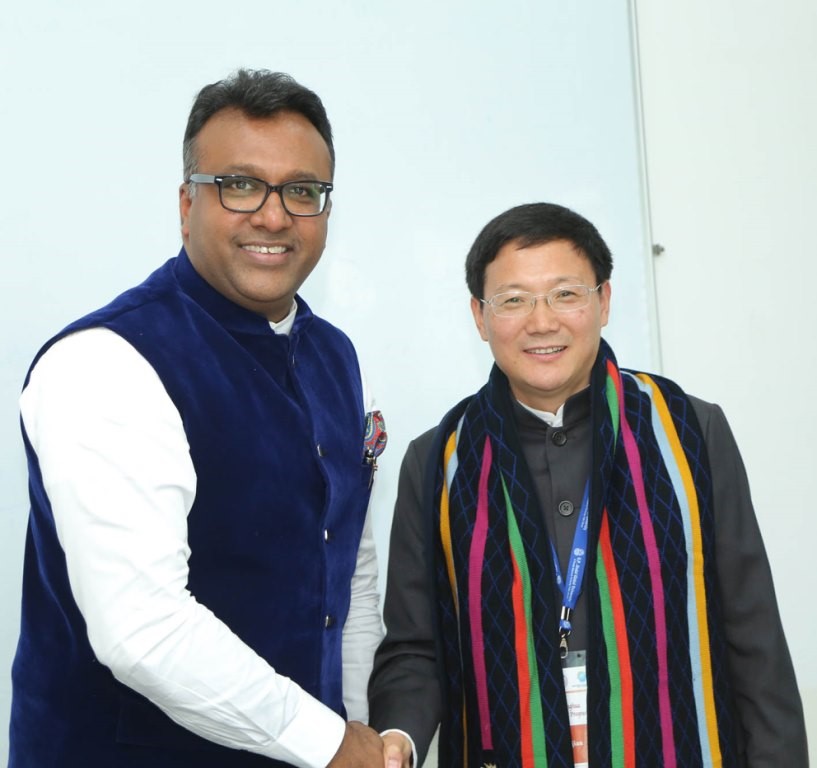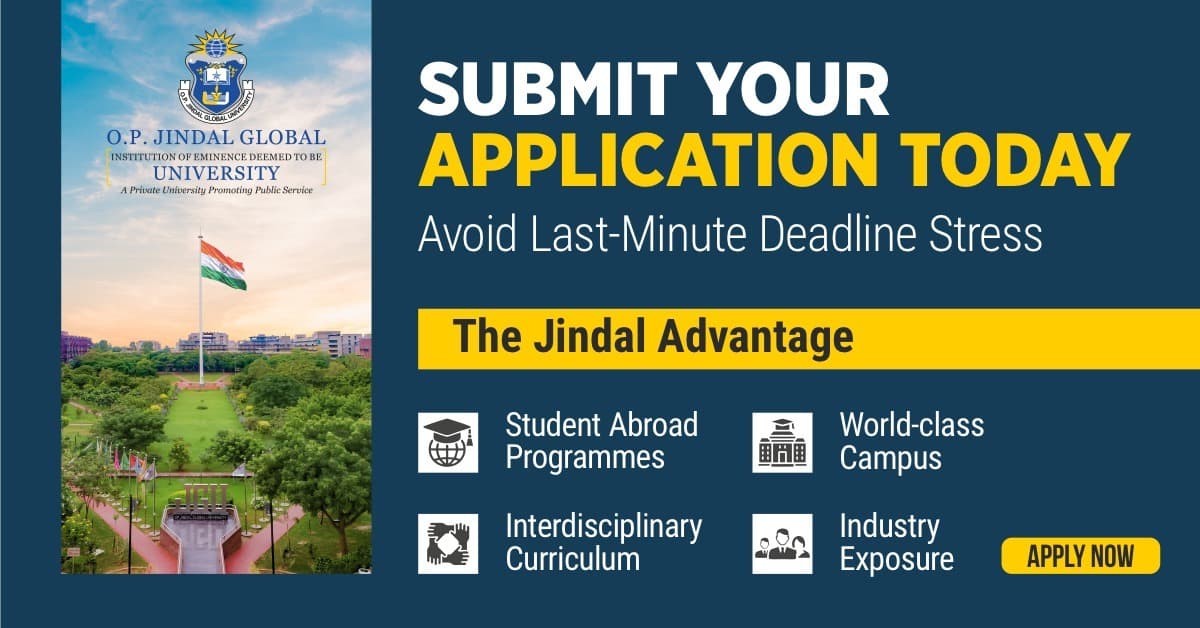Sonipat, Haryana, January 18, 2016: O.P. Jindal Global University has become the first Indian university to play host to a delegation of 23 Chinese students and faculty members from the prestigious Tsinghua University, Beijing, for a course on understanding India.
During his China visit in May 2015, Prime Minister Modi had visited the Tsinghua University and acknowledged the university as a world-class institution which has been contributing in the creation of knowledge.
The two-week “Jindal – Tsinghua India Immersion Programme” has been organised by the Jindal School of International Affairs (JSIA), O. P. Jindal Global University, in collaboration with School of Social Sciences (SSS), Tsinghua University.
Delivering the inaugural address at the commencement of this course, Mr. Li Bijian, Minister Counselor, Embassy of China observed that year 2015 has been robust for Sino-Indian bilateral ties. “Prime Minister Modi has met Chinese President Xi Jinping 5 times on different occasions, there have been more than 150 delegations at the ministerial level, and the coming year is expected to be equally robust.”
He further observed that, “In the field of economic co-operation, the investments have doubled since 2014. Companies like Ali Baba and Lenovo have increased investments in India and created over 20,000 jobs for locals. But the main lacuna has been the absence of deeper people-to-people exchanges, travels to each other’s countries and social understanding. The Jindal-Tsinghua course is a major initiative towards this end.”
Mr. Bijian asked the students to take full advantage of this opportunity to understand India and congratulated Jindal University for doing an excellent job in bringing the people of the two countries together.
Prof. C Raj Kumar Founding Vice Chancellor O. P. Jindal Global University spoke at the inaugural session and encouraged the students to think beyond the possible and noted “diplomats and political leaders are often burdened with history and thus do not enjoy the luxury of thinking of impossible solutions and making them possible. But youth on both sides of the border can and should make efforts to think beyond boundaries both geographically as well as mentally. The focus should be on similarities rather than uniqueness of the two countries.”
Commenting on the role that institutions of higher learning can play, Professor Kumar said, “Universities have a large role to play in building people to people contact and fostering improved bilateral ties between the two countries.”
Speaking on the relevance and purpose of the programme, Dr. Sreeram Chaulia, Dean Jindal School of International Affairs said, “The purpose is to educate the visiting Chinese students about Indian culture, economy, commerce, business and the key challenges that lie ahead so that it could provide a basis for understanding contemporary Sino-Indian relations.”
Dr. Roger Chi-Feng Liu, Professor at JSIA while introducing the programme made a reference to “The Seven Blind Men and the Elephant” story where he equated India to the elephant and advised the students to learn about India but not to expect to know everything. He said, “This programme is the starting point in your journey to learn about the elephant that is India.”
The Chinese delegation is visiting Jindal University as part of a Memorandum of Understanding signed by the Jindal School of International Affairs (JSIA) and the School of Social Sciences (SSS), Tsinghua University, China. The MoU provides for exchange of faculty members, exchange of students for a full semester and short-term certificate courses, joint research projects on China-India relations, joint conferences and joint curricular activities.
The two-week programme is structured to deliver both classroom as well as experiential learning through field visits, historical tours and industry visits. The themes of the sessions include: National and Regional security, Indian History, The Judicial System in India, Transformation of Social Order in India, Science and Technological Development in India etc.


